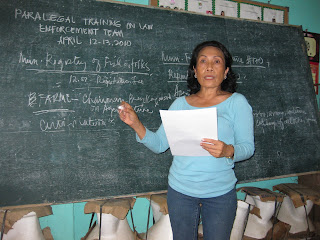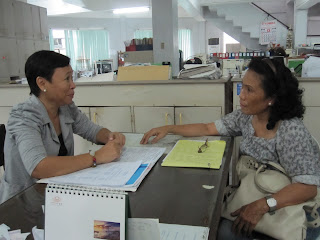 This will be my last post on this blog, at least for the forseeable future. As I look back on where it started, it seems like this post will bring a lot of things full circle, and conclude my narrative on the Peace Corps Experience I've had. Thanks to everyone who has read the blog from time to time and all of the wonderful comments. I'll have a new blog soon, either Patriotic Renaissance, or some other title, I'll keep everyone posted and invite you to follow if you're interested. Again, thanks for reading.
This will be my last post on this blog, at least for the forseeable future. As I look back on where it started, it seems like this post will bring a lot of things full circle, and conclude my narrative on the Peace Corps Experience I've had. Thanks to everyone who has read the blog from time to time and all of the wonderful comments. I'll have a new blog soon, either Patriotic Renaissance, or some other title, I'll keep everyone posted and invite you to follow if you're interested. Again, thanks for reading.
 It's been a month now since I returned from the Philippines and all of the familiar faces and places there. I haven't found work yet, but am appreciating the slower pace of things while it lasts, because I'm sure that soon, I will be busy with something, and wishing I weren't. I've made lots of pies with some extra pumpkins I made for cheap, and just finished up a couple apple pies for the thanksgiving feast. When it comes to food and family, I'm making up for lost time, indulging in cheese, milk, always putting creamer in my coffee just because I can :) and talking with cousins, parents, uncles and aunts about all of the changes that have occurred over the past two years. I have 2 new little cousins, and, since some kids were too young to speak when I left, 5 new personalities that I've gotten to meet and know. It's really something to see all that has changed. Some family members have fought disease and aging in excruciating ways, and I'm seeing the toll of those battles for the first time. While others here have been on the sidelines for the duration of the pain, I am coming into the game at halftime, trying my best to catch up on all of the battles that have been won and lost. I spend my time hunting, hiking, running, and hanging out with family. It's been great to be back.
It's been a month now since I returned from the Philippines and all of the familiar faces and places there. I haven't found work yet, but am appreciating the slower pace of things while it lasts, because I'm sure that soon, I will be busy with something, and wishing I weren't. I've made lots of pies with some extra pumpkins I made for cheap, and just finished up a couple apple pies for the thanksgiving feast. When it comes to food and family, I'm making up for lost time, indulging in cheese, milk, always putting creamer in my coffee just because I can :) and talking with cousins, parents, uncles and aunts about all of the changes that have occurred over the past two years. I have 2 new little cousins, and, since some kids were too young to speak when I left, 5 new personalities that I've gotten to meet and know. It's really something to see all that has changed. Some family members have fought disease and aging in excruciating ways, and I'm seeing the toll of those battles for the first time. While others here have been on the sidelines for the duration of the pain, I am coming into the game at halftime, trying my best to catch up on all of the battles that have been won and lost. I spend my time hunting, hiking, running, and hanging out with family. It's been great to be back.
The other evening while I was walking through the living room to watch Jeopardy! on TV, the phone rang. I picked it up, and I heard a familiar voice, strained, and a half a world away.
"Hello!! Ada hi Peter?!, Ini hi Ben Ben"
 My mind switched gears as I thought how to respond. It was Mano Ben Ben, the man who I fished and ate and laughed and drank with all those times in the tropical shade as we watched the water lick the dirty sand. The reason for Mano Ben Ben's call was because the men had just harvested 5000 of our 10,000 fish, and were preparing them for sale at market. He excitedly told me about the harvest celebration where they consumed lots of the fish and drank coconut wine, where the mayor had presided along with Nimfa, my old supervisor and Department of Labor and Employment officials. He said that the men had drank a couple rounds to me, and that he wished me a happy christmas (Malipayang Pasko), his daughters got on the phone to say hi, then his granddaughters, some of the other fishermen, and then we said goodbyes, and hung up.
My mind switched gears as I thought how to respond. It was Mano Ben Ben, the man who I fished and ate and laughed and drank with all those times in the tropical shade as we watched the water lick the dirty sand. The reason for Mano Ben Ben's call was because the men had just harvested 5000 of our 10,000 fish, and were preparing them for sale at market. He excitedly told me about the harvest celebration where they consumed lots of the fish and drank coconut wine, where the mayor had presided along with Nimfa, my old supervisor and Department of Labor and Employment officials. He said that the men had drank a couple rounds to me, and that he wished me a happy christmas (Malipayang Pasko), his daughters got on the phone to say hi, then his granddaughters, some of the other fishermen, and then we said goodbyes, and hung up. 
 Later, I received an email from LiliBelle, a Department of Labor and Employment official, who gave me more details, telling me how the men had marketed the fish at 100 pesos per kilogram, and that the Bureau of Fisheries and Aquatic Resources, after seeing their success, vowed to provide the men with their fish fingerlings for the next stocking of the fish cage. If all or most of the fish are sold, the men will have around 200,000 pesos or $4500.00 to split up between all 31 of them, which is a few months wages for these families. I can only imagine the difficulties they're facing with accounting and evenly dividing the spoils, but the money is in their hands, not with a politician, or a business person, so that's a start. As for the seaweed, the rainy season has been hard on it, and much of it was lost, but it remains growing, and 500 kilograms of seedlings have also been assured to the men by the provincial government through the Bureau of Fisheries and Aquatic Resources as well.
Later, I received an email from LiliBelle, a Department of Labor and Employment official, who gave me more details, telling me how the men had marketed the fish at 100 pesos per kilogram, and that the Bureau of Fisheries and Aquatic Resources, after seeing their success, vowed to provide the men with their fish fingerlings for the next stocking of the fish cage. If all or most of the fish are sold, the men will have around 200,000 pesos or $4500.00 to split up between all 31 of them, which is a few months wages for these families. I can only imagine the difficulties they're facing with accounting and evenly dividing the spoils, but the money is in their hands, not with a politician, or a business person, so that's a start. As for the seaweed, the rainy season has been hard on it, and much of it was lost, but it remains growing, and 500 kilograms of seedlings have also been assured to the men by the provincial government through the Bureau of Fisheries and Aquatic Resources as well.  Ben Ben called me again one evening, and this time he was more prepared. He sat at the shoreline where we had hung out so many times, surrounded by the other fishermen in the organization. He said hello, and then one-by-one, the fishermen said hello, first Don Don, then Romeo, Mano Ali, Mano Robin, Edgar, etc., passing around Ben Ben's tiny phone. It was great to hear their voices and know that they are well. Just like here, time marches on in Babatngon, Leyte, Philippines. Despite their many hardships, the men keep plugging away, and the project is serving its purpose. As I celebrate thanksgiving this year, I have a renewed understanding of all I have to appreciate, family, friends, virtually unlimited coffee, freedom to drive and explore, great music, choirs, all my 'stuff.' I'm also extremely grateful for those 31 men, and all of the wonderful children of the Philippines who I got to know, for all of the lessons that they taught me, their inspiration to slow down, take a breath, just laugh at life's challenges when there's nothing else to do. I'll not forget them, I couldn't if I wanted to. The experience was a beautiful scar. Ginhihigugma ko hira.
Ben Ben called me again one evening, and this time he was more prepared. He sat at the shoreline where we had hung out so many times, surrounded by the other fishermen in the organization. He said hello, and then one-by-one, the fishermen said hello, first Don Don, then Romeo, Mano Ali, Mano Robin, Edgar, etc., passing around Ben Ben's tiny phone. It was great to hear their voices and know that they are well. Just like here, time marches on in Babatngon, Leyte, Philippines. Despite their many hardships, the men keep plugging away, and the project is serving its purpose. As I celebrate thanksgiving this year, I have a renewed understanding of all I have to appreciate, family, friends, virtually unlimited coffee, freedom to drive and explore, great music, choirs, all my 'stuff.' I'm also extremely grateful for those 31 men, and all of the wonderful children of the Philippines who I got to know, for all of the lessons that they taught me, their inspiration to slow down, take a breath, just laugh at life's challenges when there's nothing else to do. I'll not forget them, I couldn't if I wanted to. The experience was a beautiful scar. Ginhihigugma ko hira.
















































